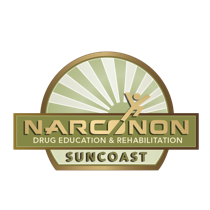Learning To Be There, the First Step For Many in Addiction Recovery

Learning to simply be there and be there comfortably is an important skill, not only for those in recovery but for anyone who has experienced the effects of addiction. Without this critical skill, communication is difficult and addiction often has the upper hand.
Much of the negativity created by addiction results from an inability to simply be comfortable in one’s own skin. To escape these negative feelings, many addicts turn to drugs or relapse without warning. However, this skill isn’t for the addict alone.
Being there comfortably for a loved one allows you to be entirely present for another person—mentally, physically, and emotionally. When you’re there for someone, you are acting from a nonjudgmental position. You are putting forth your focus onto them to support them while they feel their feelings and express those feelings. If you approach somebody in a way that is free of judgment, and you talk to them from a place of purely wanting to help them, they are more likely to respond to that help. Whether that help is getting them treatment while they are in active addiction or emotional support during or post-treatment, your loved one is going to be more willing to open up to you if they feel emotionally safe and heard. Being there allows you to be present for somebody and leaving your resentments or judgments at the door. It is a tool that can open communication and allows for your advice and problem-solving to be more receptive by your loved one. If you apply this to a loved one who feels vulnerable, they will feel safer, seen, understood, and supported. This type of emotional support lends itself very useful when someone is struggling.
In addition to discomfort with simply being themselves, addicts tend to close themselves off emotionally, which can shut the door for open communication. This can be a huge issue because communication is so vital to getting and staying sober. When there’s a lack of communication in a relationship, whether that be with a spouse, friend, or family member, a huge strain can be put on that relationship, which can lead to a failure in opportunities to help them. The more you lend support to them in this way, the less likely they will be emotionally shut off when responding to your communication.
One way to improve communication and have an effective conversation is by practicing really listening. When your loved one speaks to you, keep your attention focused on them and what they are saying. Make it a point to wholeheartedly listen to them and give them your undivided attention. Break down what they are telling you and try to relate to it. Remember to leave your own issues aside and always be present. Try to keep the conversation revolving around them and the topic at hand. Avoid injecting your opinions while they are speaking. Respect their communication and remind yourself that this is about them. Do not let yourself get sidetracked. If they happen to get sidetracked, gently shift the attention back to them and the topic at hand.
Being comfortable may be a challenge when strong emotions come up. Both you or your loved one may experience a lot of different emotions and want to express those emotions, and that is normal in recovery. Whether they are expressing frustrations and anger regarding a smaller issue, they ran into, or they are in a crying fit about a bigger problem, just simply be there and calmly listen and acknowledge how they feel. Reassure them that they are going to be okay and that you are there for them. Be a compassionate and loving influence during their time of need, and remember that sometimes a simple acknowledgment of the addict's struggle can go a long way.
By Danielle P.-Narconon Suncoast Graduate


